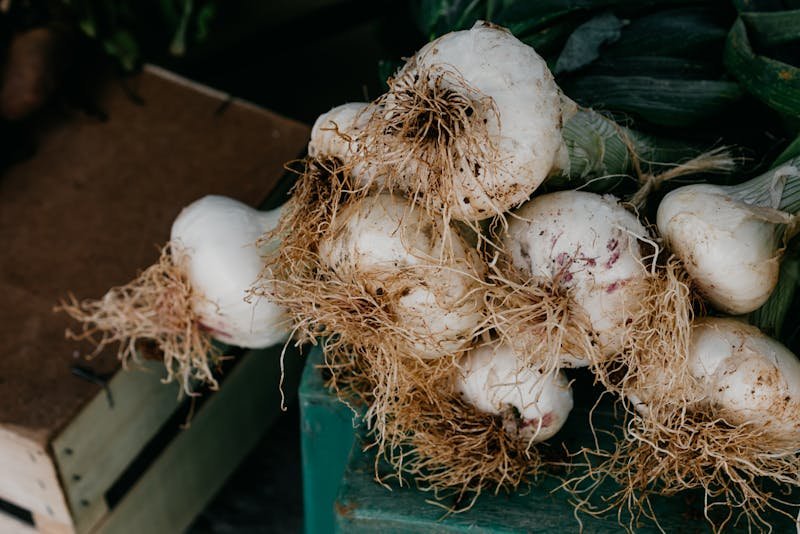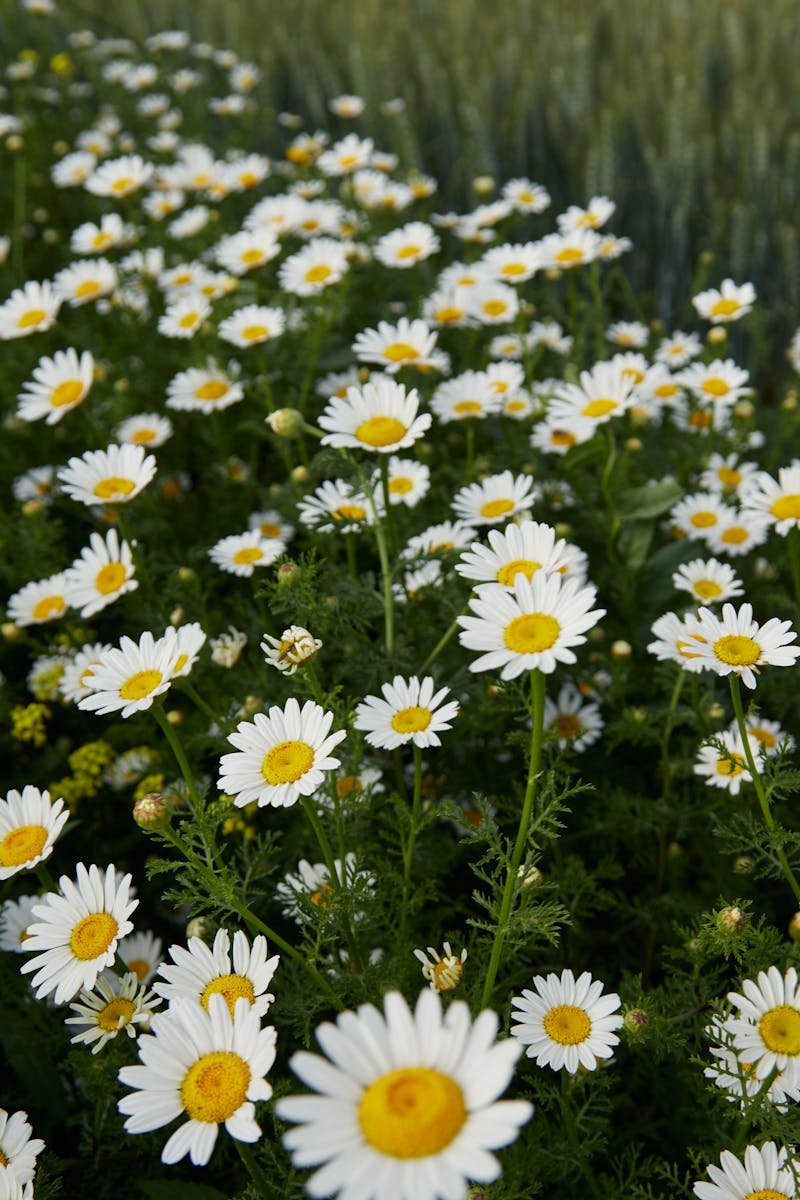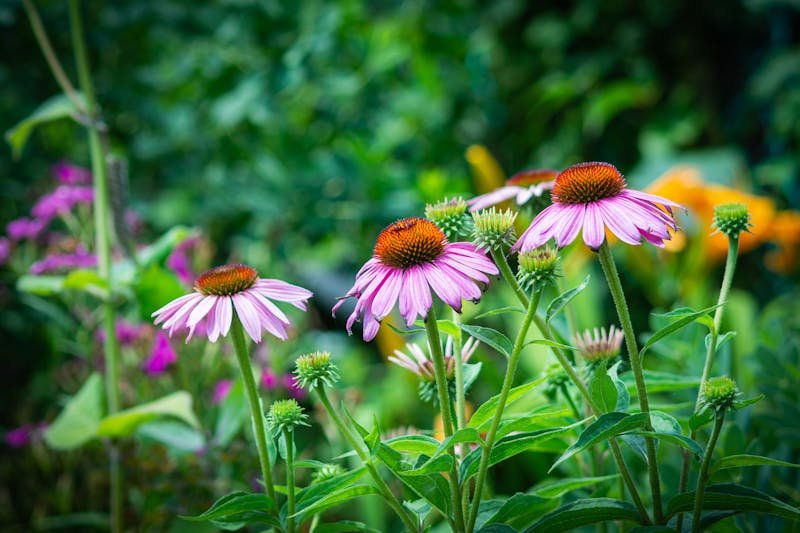10 Powerful Medicinal Plants You Can Easily Find and Use at Home
"Healing begins in the garden, where plants hold
the secrets to a healthier, more vibrant life."
Disclaimer: The information provided here is for educational purposes and
not a substitute for professional medical advice. Always consult a healthcare
provider before using any medicinal plants, especially if you have health conditions,
are pregnant or breastfeeding, or take medications.
Ginger (Zingiber officinale)
Why it's beneficial:
Ginger is a versatile and highly valued herb, both in the kitchen and for its health benefits. This root is loaded with gingerol, a compound known for its anti-inflammatory properties, which makes it an excellent remedy for easing joint pain, reducing muscle soreness, and improving digestion. Ginger is also commonly used to alleviate nausea, making it a popular choice for those experiencing motion sickness or pregnancy-related nausea. Additionally, it helps boost immunity and can fight off various infections.
What makes ginger special?
Gingerol: Known for its pain-relieving and anti-inflammatory properties.
Shogaol: This compound contributes to its powerful antioxidant benefits.
Zingiberene: Supports better digestion and helps alleviate nausea.
How to use ginger:
Ginger Tea: Slice 1-inch fresh ginger root and steep it in hot water for 10 minutes. Drinking this tea 2-3 times a day can help ease nausea and support digestion.
Ginger Powder: Add 1/4 teaspoon of ginger powder into warm water for a soothing drink to settle the stomach.
Who should use it?
Most people can safely enjoy ginger, but individuals with gallbladder problems or those taking blood-thinning medications should be cautious. Always check with a healthcare professional if you're uncertain.
Turmeric (Curcuma longa)
Why it's beneficial:
Turmeric, with its vibrant golden color, has earned its place as a superstar herb due to its powerful healing properties. The key compound, curcumin, offers strong anti-inflammatory effects, which makes turmeric ideal for managing conditions like arthritis and other inflammatory diseases. It’s also renowned for its antioxidant abilities and its potential to support heart and brain health.
What makes turmeric special?
Curcumin: Known for reducing inflammation and protecting against chronic diseases like cancer and Alzheimer's.
Demethoxycurcumin & Bisdemethoxycurcumin: These compounds enhance liver detoxification and bolster the immune system.
How to use turmeric:
Golden Milk: Combine 1/2 teaspoon of turmeric with warm milk and a pinch of black pepper for better absorption. This warm, soothing drink is perfect before bedtime to ease inflammation.
Turmeric Tea: Boil 1 teaspoon of turmeric powder in 2 cups of water for 10 minutes. Enjoy this tea daily to support overall health and reduce inflammation.
Who should use it?
Turmeric is generally safe, but people with gallstones or gallbladder issues should avoid high doses. Pregnant or breastfeeding women should consult a healthcare provider before taking large amounts.
Garlic (Allium sativum)
Why it's beneficial:
Garlic has been a staple in both cooking and natural medicine for centuries, and for good reason. The active compound allicin gives garlic its antibacterial, antiviral, and antifungal properties. Garlic can support heart health, lower cholesterol, regulate blood pressure, and combat infections. It’s also known to help with digestion and boost the immune system.
What makes garlic special?
Allicin: Provides powerful antimicrobial benefits and helps lower cholesterol.
S-allyl cysteine: Supports liver health by helping detoxify the body.
How to use garlic:
Raw Garlic: Crush 1-2 cloves of garlic and eat them raw to help improve immunity and lower blood pressure.
Garlic Tea: Boil 2 garlic cloves in water for 5 minutes. Drink this tea daily to support your immune system and fight infections.
Who should use it?
Garlic is safe for most, but individuals taking blood-thinning medications or those with gastric issues should be cautious. Excessive consumption may cause stomach discomfort, and pregnant or breastfeeding women should consult their doctor before using large amounts of garlic.
Aloe Vera (Aloe barbadensis miller)
Why it's beneficial:
Aloe vera is best known for its soothing properties, especially for the skin. It’s commonly used to treat burns, cuts, and other skin irritations. But aloe vera’s benefits don’t stop there—it also aids digestion, detoxifies the body, and supports immune health due to its acemannan content, which helps promote tissue healing and reduce inflammation.
What makes aloe vera special?
Acemannan: This compound helps boost immune function and accelerates the healing of wounds.
Anthraquinones: These compounds offer mild laxative effects, which help relieve constipation.
How to use aloe vera:
Topical Use: Apply fresh aloe vera gel directly to burns, rashes, or other skin irritations for soothing relief and faster healing.
Aloe Juice: Mix 1 tablespoon of aloe vera gel with a glass of water. Drinking this once a day can help promote digestion and detoxify the body. Use sparingly to avoid its laxative effect.
Who should use it?
Aloe vera is generally safe for topical use. However, individuals with diabetes, kidney disease, or gallbladder issues should consult a healthcare provider before consuming it internally.
Oregano (Origanum vulgare)
Why it's beneficial:
Oregano is a familiar herb in many kitchens, but it’s also a potent medicinal plant. Its essential oil contains compounds like carvacrol and thymol, which have strong antibacterial and antioxidant properties. Oregano is often used to fight infections, alleviate digestive problems, and promote respiratory health, especially when dealing with colds or flu.
What makes oregano special?
Carvacrol: This compound has powerful antibacterial properties and is effective in fighting infections.
Thymol: Known for its antioxidant and digestive benefits, it also helps boost the immune system.
How to use oregano:
Oregano Tea: Steep 1 teaspoon of dried oregano leaves in hot water for 10 minutes. Drinking this tea once or twice a day can help relieve digestive discomfort or fight a cold.
Oregano Oil: Dilute oregano oil with a carrier oil and apply it topically to fungal infections or use it in steam inhalation to clear nasal congestion.
Who should use it?
Oregano is generally safe for most people, but pregnant women and individuals with a sensitive stomach should consult a doctor before using it. Always dilute oregano oil before applying it to the skin.
Lemon Balm (Melissa officinalis)
Why it's beneficial:
Lemon balm has a gentle, calming effect on the body, making it an excellent choice for reducing stress and anxiety. It’s also effective in promoting better sleep and alleviating insomnia. Additionally, lemon balm has antiviral properties, making it helpful for treating cold sores and other mild viral infections.
What makes lemon balm special?
Rosmarinic Acid: Known for its ability to reduce stress and improve sleep quality.
Flavonoids: These antioxidants help fight free radicals and protect the body from oxidative damage.
How to use lemon balm:
Lemon Balm Tea: Steep 1-2 teaspoons of dried lemon balm leaves in hot water for 10 minutes. Drink it in the evening to help reduce stress and promote relaxation before bed.
Topical Application: Apply lemon balm ointment to cold sores or viral skin outbreaks for soothing relief.
Who should use it?
Lemon balm is generally safe for most people, but if you have a thyroid condition, use it cautiously. Pregnant and breastfeeding women should consult a healthcare provider before use.
7. Peppermint (Mentha piperita)
Why it's beneficial:
Peppermint is well-known for its ability to settle the stomach and relieve digestive issues. The menthol in peppermint helps reduce nausea, bloating, and indigestion. Additionally, peppermint is effective for headaches and respiratory conditions like congestion, making it a versatile medicinal herb.
What makes peppermint special?
Menthol: A natural muscle relaxant that helps soothe the stomach and relieve nausea.
Flavonoids & Tannins: Known for their anti-inflammatory and antioxidant properties.
How to use peppermint:
Peppermint Tea: Steep fresh or dried peppermint leaves in hot water for 5-10 minutes to help with nausea and digestive discomfort.
Peppermint Oil: Dilute and apply it to the temples or forehead to relieve headaches or tension.
Who should use it?
Peppermint is generally safe for most, but individuals with acid reflux or GERD should avoid it, as it may worsen symptoms.
Chamomile (Matricaria chamomilla)
Why it's beneficial:
Chamomile is widely celebrated for its relaxing effects. It’s a popular herb for promoting better sleep and easing anxiety. In addition to its calming properties, chamomile also has anti-inflammatory and mild pain-relieving effects, making it useful for addressing digestive issues, cramps, and even mild skin irritations.
What makes chamomile special?
Apigenin: This antioxidant promotes relaxation and helps reduce anxiety.
Bisabolol: A gentle compound that soothes irritated skin and has mild antimicrobial effects.
How to use chamomile:
Chamomile Tea: Steep 1-2 teaspoons of dried chamomile flowers in hot water for 5-10 minutes. Drink it before bed to support relaxation and sleep.
Chamomile Compress: Use cooled chamomile tea bags on inflamed or irritated skin for soothing relief.
Who should use it?
Chamomile is generally safe, but if you're allergic to ragweed or Asteraceae plants, avoid it. It may also interact with blood thinners.
Echinacea (Echinacea purpurea)
Why it's beneficial:
Echinacea is widely known for its ability to stimulate the immune system. It's frequently used to reduce the severity of cold and flu symptoms and speed up recovery. Studies suggest that it can help improve immune function and fight infections.
What makes echinacea special?
Polysaccharides: These helps stimulate the immune system.
Alkamides: Offer anti-inflammatory benefits and may help reduce pain.
How to use echinacea:
Echinacea Tea: Steep dried echinacea flowers or roots in hot water for 10 minutes. Drink this tea to help fight off colds.
Echinacea Tincture: Take 1-2 milliliters of tincture daily to support immunity.
Who should use it?
Echinacea is safe for most, but people with allergies to daisies, ragweed, or asters should avoid it. If you have an autoimmune condition, consult a healthcare provider first.
10. Lavender (Lavandula angustifolia)
Why it's beneficial:
Lavender is famed for its calming effects, which help reduce anxiety, promote relaxation, and improve sleep. It also offers mild antibacterial and anti-inflammatory benefits, making it an excellent option for treating minor burns, insect bites, and skin irritations.
What makes lavender special?
Linalool: Known for its calming effects and ability to reduce anxiety.
Camphor: Offers antibacterial and anti-inflammatory properties.
How to use lavender:
Lavender Tea: Steep dried lavender flowers in hot water for a calming tea.
Lavender Oil: Diffuse lavender oil in your home to promote relaxation, or apply diluted oil to burns or insect bites for relief.
Who should use it?
Lavender is safe for most, but it should be used cautiously by those with essential oil sensitivities. Pregnant and breastfeeding women should consult a doctor before using lavender oil.
We’d love to hear from you! Have you tried any of these medicinal plants? Share your thoughts or experiences in the comments below!
These 10 medicinal plants are easy to find, simple to prepare, and offer a variety of health benefits. However, for the best results and to avoid harmful toxins, always use organic, pesticide-free, and chemical-free plants.
Many of the medicinal plants mentioned above are available in my store, MDess Botanical Garden. You can find high-quality, organically grown herbs, seeds, and live plants to start your own natural healing garden. Check out our selection here: MDess Botanical Garden - Seeds, Plants, Herbs & Vegetables
source:
https://ncbi.nlm.nih.gov/pmc/articles/PMC9422945/
https://www.mdpi.com/2076-3417/11/18/8477
https://ncbi.nlm.nih.gov/pmc/articles/PMC9422945/
https://www.vogue.com/article/aloe-vera-juice-benefits
https://pmc.ncbi.nlm.nih.gov/articles/PMC10420791/
https://www.healthline.com/nutrition/antiviral-herbs
https://www.healthline.com/nutrition/antiviral-herbs
https://www.healthline.com/nutrition/antiviral-herbs
Image Credits:
Some images in this blog post are sourced from Pexels, while others are personal photos taken by MDess Botanical Garden. All images used are either free for commercial use or self-owned.










